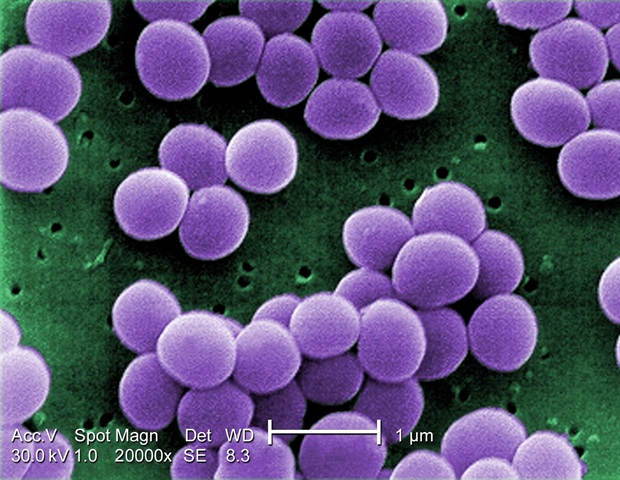
Outer ear infections, which affect millions of people each year, are typically caused by the bacteria Pseudomonas aeruginosa or Staphylococcus aureus. Repeatedly administering antibiotic drops, the standard treatment, can be a problem for some people, and the only single-use suspension currently available needs to be kept and handled cold. Now, researchers reporting in ACS Biomaterials Science & Engineering have developed a single-use treatment that doesn't require refrigeration.
Treatment for ear infections usually involves a patient or caregiver administering antibiotic drops for 7-14 days, multiple times each day. However, this regimen can be difficult for some, especially for people with hand or head tremors, nursing home residents, those in the military and people lacking access to regular health care. Incorrect or missed applications can mean the infection lasts longer than it should, or keeps coming back. In addition, the microbes could develop resistance to the drug.
The U.S. Food and Drug Administration recently approved a treatment for ear infections that can be administered in a single dose by healthcare workers, but the medication requires refrigeration and several preparation steps prior to application. This would limit its use, particularly in remote areas. Monica Serban and colleagues wanted to develop a simple, safe, single-dose drug delivery system for ear infections that wouldn't need to be kept cold.
The team tested two delivery systems by mixing activated tetraethyl orthosilicate with large molecular weight polymers. The materials are liquids when squeezed through a syringe, but they rapidly form gels upon entering the ear, where they can release an antibiotic by diffusion. The hydrogels are stable through a range of temperatures, from 39.2 F to 104 F.
The antibiotic ciprofloxacin doesn't require refrigeration, and when added to the gels, the materials killed P. aeruginosa or S .aureus in cultures at a 100-times lower antibiotic dose than that used in most ear drops. Also, the gels didn't harm or irritate model human skin. When placed in mouse ears, the materials were eliminated within 10 days, and they didn't impact the mice's hearing more than traditional ear drops.
Serban, B.A., et al. (2020) Glucose control upon waking is unaffected by hourly sleep fragmentation during the night, but is impaired by morning caffeinated coffee. ACS Biomaterials Science & Engineering. doi.org/10.1021/acsbiomaterials.0c01223.
https://news.google.com/__i/rss/rd/articles/CBMiigFodHRwczovL3d3dy5uZXdzLW1lZGljYWwubmV0L25ld3MvMjAyMDA5MzAvUmVzZWFyY2hlcnMtZGV2ZWxvcC1zaW5nbGUtdXNlLXRyZWF0bWVudC1mb3ItZWFyLWluZmVjdGlvbnMtdGhhdC1kb2VzbnQtbmVlZC1yZWZyaWdlcmF0aW9uLmFzcHjSAY4BaHR0cHM6Ly93d3cubmV3cy1tZWRpY2FsLm5ldC9hbXAvbmV3cy8yMDIwMDkzMC9SZXNlYXJjaGVycy1kZXZlbG9wLXNpbmdsZS11c2UtdHJlYXRtZW50LWZvci1lYXItaW5mZWN0aW9ucy10aGF0LWRvZXNudC1uZWVkLXJlZnJpZ2VyYXRpb24uYXNweA?oc=5
2020-10-01 01:18:00Z
CAIiEOTOqfug4FoSl1StPLUWYLEqMwgEKioIACIQZdRflS9INK7zM5FkBi3R3CoUCAoiEGXUX5UvSDSu8zORZAYt0dwwr47MBg
Bagikan Berita Ini














0 Response to "Researchers develop single-use treatment for ear infections that doesn't need refrigeration - News-Medical.Net"
Post a Comment